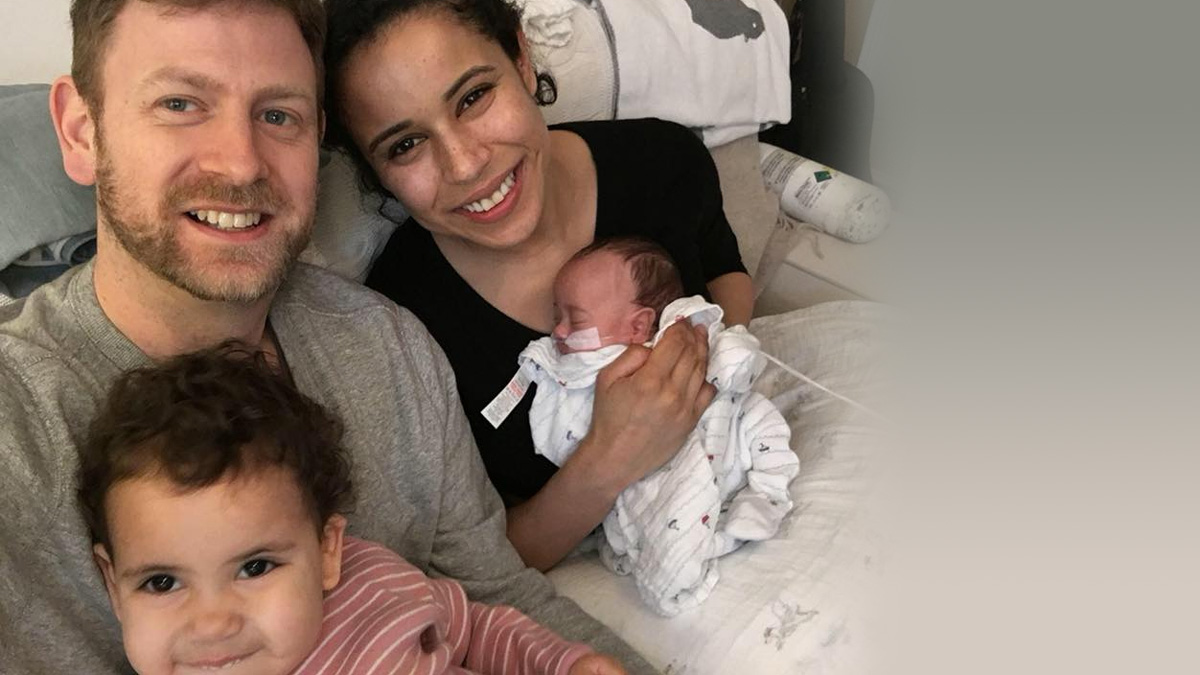COVID-19 and premature babies: Locking down to protect their future

Everyone is living with a certain degree of COVID-19-related fear and anxiety at the moment – but spare a thought for the parents of premature and sick babies.
Over the last few weeks, the world has become an even more uncertain place for the parents of premature and sick babies.
Precautions intended to protect the most vulnerable have placed restrictions on the number of people allowed to visit neonatal units, while follow-up appointments and community care hang in the balance.
Many older children who were born prematurely and now have complex medical needs have been asked to stay at home for 12 weeks while the country works to get the virus under control.
Lockdown replay
It means that Victoria Salt, whose two-year-old son Arthur has paediatric dysphagia and chronic lung disease after being born at 28 weeks, has found herself and her family in full lock down for the second time in his short life.
“We haven’t had the letter from the Government to say he is in the vulnerable group, but his consultant called to advise us to act as if he was.
“For the first week or so, I was really anxious. Arthur has had pneumonia three times in the last year, so he is no stranger to hospitals and we really didn’t want to go in with all this going on,” says Victoria, who went into labour early during a family holiday in Scotland.
Arthur needed A&E care about three weeks ago, when he started showing the signs of another chest infection. The hospital, says Victoria, was “eerily quiet” and they were “in and out really quickly”.
Since then, the whole family, including dad Tom and three year old sister Juliette, have been isolating in their London home. They will be falling back, Victoria says, on their previous experience.
She explains: “At the beginning, the thought of 12 weeks in lockdown seemed really daunting. Then a friend I met on the neonatal unit reminded me what the doctors said when he was born.
“They say be prepared for the fact that your baby is not going to come home for three months and you think ‘how will I bear that; how will I survive?’. You couldn’t imagine three months at the time, and you can’t imagine it now, but time passes.”
Protective environment
The Salt household is also very much used to rigorous hygiene, as Arthur’s immune system was still very low when he was finally discharged from the hospital.
“We’ve done all this before – the handwashing, the removing of rings and wiping everything down. I remember developing eczema from all the handwashing.
“The nurses told us to avoid cafes and places with lots of people, to avoid people with coughs and colds, and to make sure people washed their hands before they held the baby. It’s a little bit like going back to that, but the difference now is that everyone is doing it.”
Ultimately the family is focusing on how these precautions will keep them, and Arthur, safe.
“There is the thought of if he were to get this virus, would he survive. His lungs aren’t great, and they have a lot of scarring. But we have to look at the facts and be pragmatic,” says Victoria.
“Being isolated makes you feel more protected. We are being really careful – we know that we can keep him safe here at home.”
Parents of babies currently in hospital, she says, are in a much more worrying position.
“It must be absolutely horrendous, especially if you have other children at home,” says Victoria. “To have that fear of taking an infection in every time you visit; I just can’t imagine.”
Families torn apart
Over the last few weeks, neonatal and paediatric units have been restricting access, in many cases only allowing one parent at a time to be with their child.
Bliss, a charity that supports the families of premature and sick babies, have said the decision, while warranted, could lead to babies dying alone.
Caroline Leed-Davey, chief executive of Bliss, said: “The devastating reality of neonatal care is that not every baby born premature or sick will go home. Nothing can lessen the pain of a baby dying, but we know that excellent end-of-life and bereavement care makes an enormous difference to families.
“The unprecedented COVID-19 situation means neonatal services across the UK are having to make difficult decisions about access for parents to ensure vulnerable babies are kept safe – but no parent should be denied time with their baby during the last hours of their life.”
Babies who receive palliative and end of life care over the coming weeks and months, said the charity, must still be able to have their parents by their side.
A wide range of information and support for families of premature and sick babies is available on the Bliss website.












